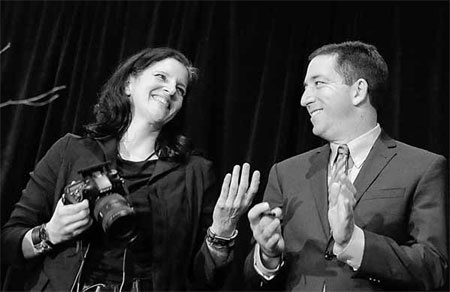Crucial Snowden questions loom large over Pulitzers
Updated: 2014-04-14 07:14
By Agence France-Presse in New York (China Daily)
|
||||||||
Hero or traitor? The United States is still polarized over Edward Snowden and whether the newspapers that exposed the extent of the National Security Agency's vast global spying network should be lauded or condemned.
Ten months on, the question on journalists' lips is whether the most prestigious journalism prize in the US, the Pulitzers, will honor them when the annual awards are announced on Monday.
For most journalists, there is no debate.
In arguably the most influential story for a decade, The Guardian and The Washington Post broke sensational new ground by exposing how the US government monitors the data of millions.
But the leaks embarrassed Washington, strained relations with allies angered that the US had been tapping into the private phone calls of leaders, and sparked a debate within the US on the merits and morality of mass surveillance.
Public opinion is at worst divided. Many believe that US citizens have a right to know what the government is doing. Others say Snowden is a traitor and a criminal who should be prosecuted.
Paul Janensch, professor emeritus at Quinnipiac University's School of Communications, predicted tension between journalists and establishment members of the Pulitzer jury.
"These are fabulous pieces of journalism on the one hand, but on the other hand the documents were leaked, they were classified, they were distressing to the US government," Janensch said.
"And the person who provided the information took refuge in Russia, so I understand there can be serious debate."
'Appropriate choice'
In January, US Director of National Intelligence James Clapper suggested that journalists reporting on the leaks had acted as Snowden's "accomplices."
Glenn Greenwald and Laura Poitras, US journalists who interviewed Snowden in Hong Kong, returned to the US on Friday for the first time after breaking the story.
They told reporters after receiving a George Polk Award for their coverage with Ewen MacAskill of The Guardian and the Post's Barton Gellman that they fear arrest and being subpoenaed.
New York University media studies professor Mark Miller said: "I can't imagine a more appropriate choice for a Pulitzer Prize. Glenn Greenwald has done what American journalists are supposed to do, which is serve the public interest by shedding a bright light on egregious abuse of power by the government."
There is tremendous pressure on journalists to toe the line, Miller said, despite relaxed press freedom laws in the US.
"The real journalistic heroes in this country tend to be the mavericks, the eccentrics, those who dare to report stories that are often dismissed derisively as conspiracy theory," he added.
Media experts say there is no evidence that any of the reporting endangered national security, and Greenwald, Poitras and MacAskill have emphasized how carefully they treated the material.
Their supporters say it would be damaging for the credibility of the Pultizer Board, which has a reputation for being conservative, not to honor the biggest scoop in a decade.
"They would have surrendered to the right wing or the culturally conservative on security questions in American politics," said Christopher Simpson, communications professor at American University in Washington.
The US media is considered more conservative on questions of US national security than foreign publications.
|
Winners Laura Poitras and Glenn Greenwald, who reported on spy agency analyst Edward Snowden's leaks exposing mass government surveillance, attend the George Polk Awards in New York on Friday. They said after the presentation that they fear being arrested and subpoenaed. Eduardo Munoz / Reuters |
(China Daily 04/14/2014 page11)
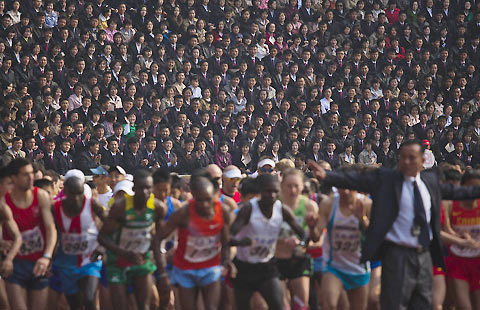
 DPRK opens race to foreigners
DPRK opens race to foreigners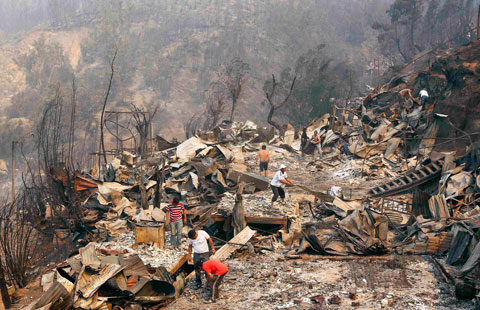
 Death toll from Chile forest fire rises to 16
Death toll from Chile forest fire rises to 16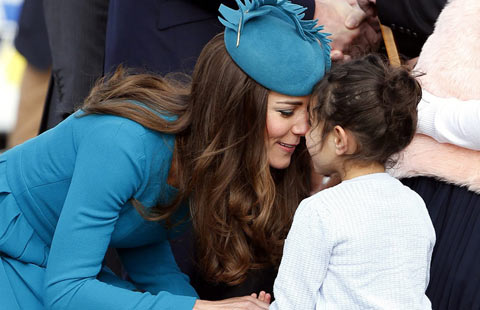
 Duchess receives Maori welcome
Duchess receives Maori welcome
 Christie's to auction dazzling diamonds
Christie's to auction dazzling diamonds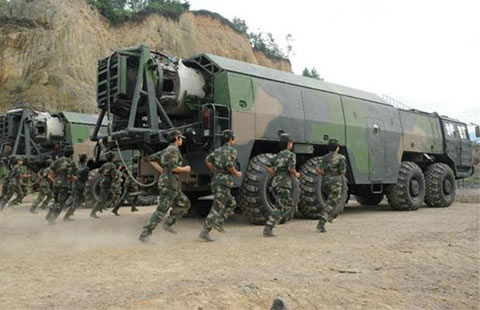
 Women's missile unit joins China's army
Women's missile unit joins China's army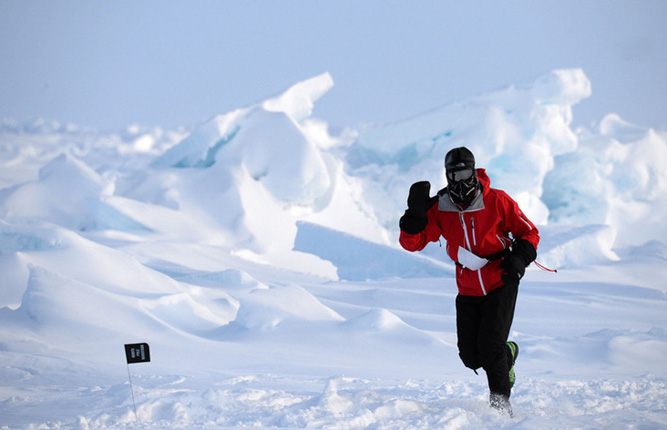
 Coldest marathon: a song of ice and fire
Coldest marathon: a song of ice and fire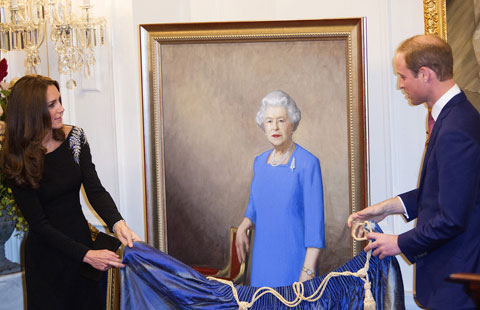
 Prince William, Kate unveil portrait of Queen Elizabeth
Prince William, Kate unveil portrait of Queen Elizabeth
 Hagel gets recipe of goodwill
Hagel gets recipe of goodwill
Most Viewed
Editor's Picks

|

|

|

|
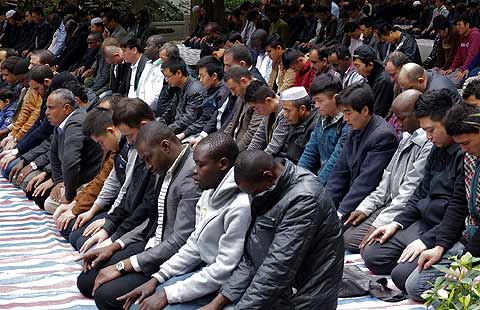
|

|
Today's Top News
Experts discuss about custody of black box
Foreign investment law to be revised
China protests Shindo's shrine visit
China's financial reforms 'not tough one'
Boao Forum focuses on 'growth drivers' for Asia
Texas firm offers costly air purifier
NBA to play games in China
'Shared responsibility' emphasized
US Weekly

|

|
